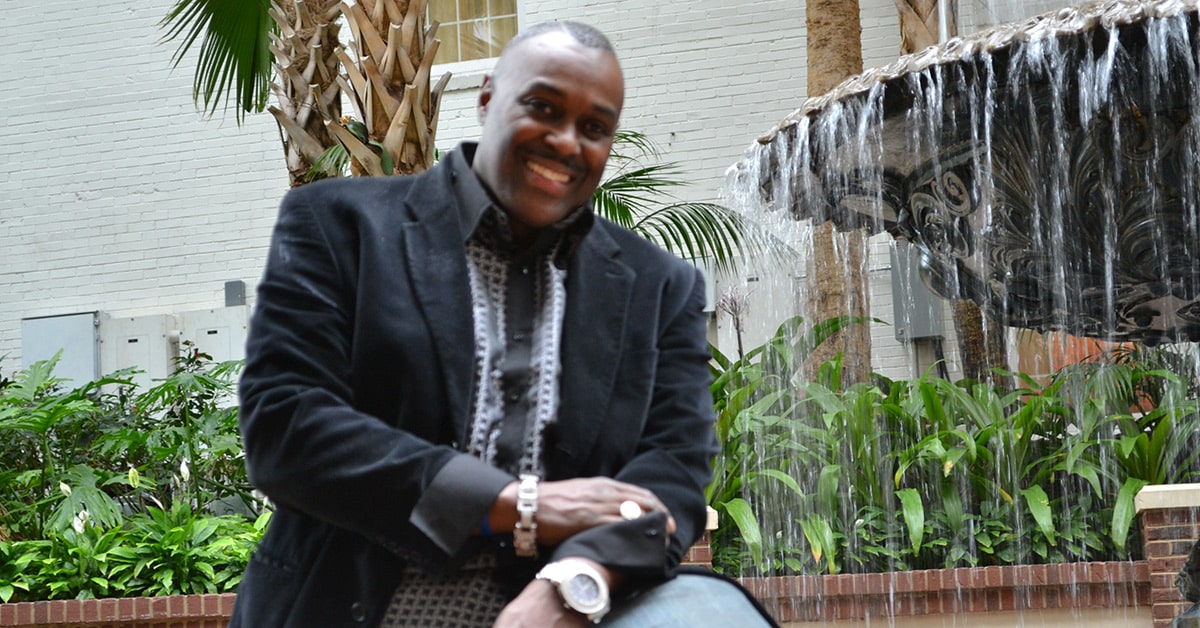By Rev. Percy McCray
Here is the most important piece of advice I have for friends and family engaging with a loved one with cancer over the holidays: let the patient drive the bus.
You are not the bus driver.
While I encourage patients to attend holiday gatherings and spend time with family and friends if they are physically able, it may also surface a range of questions and emotions, which includes, “What will I do when they ask me about my cancer?”
One way we can reduce their stress and increase their enjoyment is by putting them in the driver’s seat.
Letting Go of the Wheel
Many people—church members, friends, and family members—try to “drive the bus.” Here’s what I mean: they try to have the conversation with the patient that they want to have instead of allowing the patient to lead.
Every cancer patient needs to feel empowered. This is important for them emotionally, mentally, and spiritually because cancer can be a thief, stripping people of power. By letting them steer the conversation, we help give them control.
Open-ended questions empower people to talk about what they want, not what you want. Questions like, “How are you feeling?” “How has your treatment gone?” and “How are you feeling about your care team?” Don’t be morbid, of course, but show genuine compassion and concern.
On that last question, many cancer patients are so engaged with their health care team, and sometimes they’re having good experiences and sometimes not so good. Let them share how that’s going.
Don’t proceed to give them an answer or answer questions for them: “How are you doing, sweetie? You know what, I see how you’re doing. You’re not feeling well, are you? Well, we’re here for you.”
Most cancer patients are comfortable talking about their cancer, so don’t dodge them or avoid having a conversation with them about what they’re going through. They can sense that wall, which can leave them feeling alienated.
By and large, they will welcome your sensitive conversation.
Putting on the Brakes
Let the patient lead you and dictate the tone, tempo, and pace of the conversation. Don’t force a topic. If you broach something they don’t want to talk about, step away from it. Read the room and look at the patient’s body language: Are they receptive to questions or do they change the subject? They might ask, “How’s Joey doing in football?” Go with that. They’re letting you know they don’t want to have that discussion, so don’t.
If there’s an assertive family member who is over the top or too direct, it can give the family peacemaker a chance to step in and say, “Hey Bill, why don’t we give Sarah a chance to relax. She’ll let us know when she’s ready to talk about how she’s feeling and how things are going.” That comment decompresses the energy in the room.
But the fact that Uncle Bill has put the topic out on the table also provides a natural opportunity for the peacemaker to circle back and say, “Sarah, is this something you want to talk about? We are here to support you, and if you don’t want to, we don’t have to. If you’re comfortable talking about it, maybe after dinner would be okay? But you let us know.”
Steering the Discussion
Some patients are more comfortable taking the lead. They can “drive the bus” by breaking the ice.
They might say something like, “Before we get into our family traditions, I first would like to say how grateful I am to be with my family. The holidays are more meaningful to me now than ever before. You all know I have cancer. I want you to feel free to ask questions.”
When loved ones hear that you have cancer, they may freeze. One way you can lead the discussion is by offering a general report. “My last chemo was two weeks ago, and according to the last scans, my doctor said I’m doing well.” This provides a place to begin for your loved ones who aren’t sure how to approach the topic. By taking the initiative, if you’re feeling up for it, you can take the chill out of the room and help everyone to relax.
In all these examples, it’s the patient controlling the conversation. Everybody else is just a passenger. The patient gets to take people where they want to go and can stop the bus when they’re ready to let friends and family off.
Mapping the Conversation
If you’re going to host the family party this year, you might reach out to the cancer patient prior to the event. Let them know you wanted to check in with them and gauge their comfort level about discussing their current health.
Offer to moderate a conversation with the rest of the family. People who are shy and reserved may want someone else to moderate on their behalf. The host can also learn the patient’s boundaries, for example, “I don’t want to talk about the double mastectomy.” The cancer patient will appreciate that you were considering his/her boundaries.
Driving Home the Point
The holiday season is a time for people to return to their personal ground zero, which is their family, friends, and other loved ones – the people who care about them. It is important for the cancer patient to have a tangible feeling of love and connectedness, and we should be cognizant of that.
Part of what is healing and helpful to them is being part of the family dynamic. They want to be treated normally and positively, but do not want to be the center of attention. Let’s engage with our loved ones who have a cancer diagnosis with that in mind.
And remember, let them drive the bus. You’ll bless them as you sit back and go along for the ride.
…..
The Rev. Percy McCray is director of faith-based programs for Cancer Treatment Centers of America, a part of City of Hope. You can hear more of his insights on cancer care by listening to the Health, Hope & Inspiration podcast at HealthHopeAndInspiration.com.

